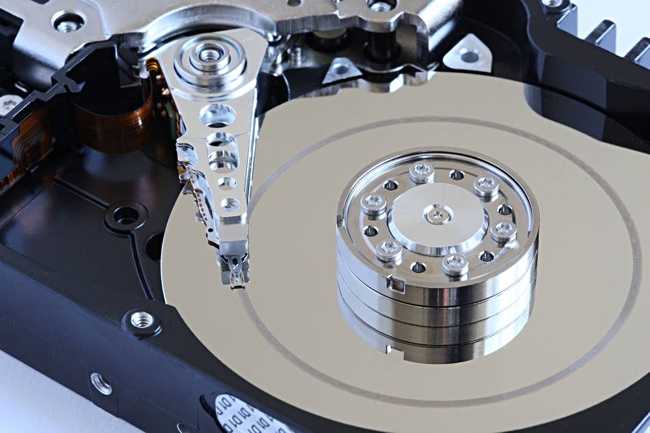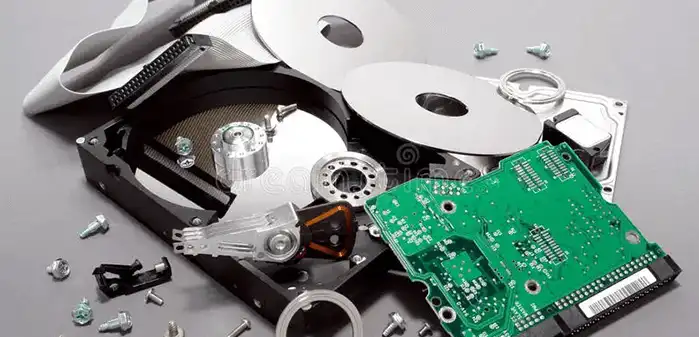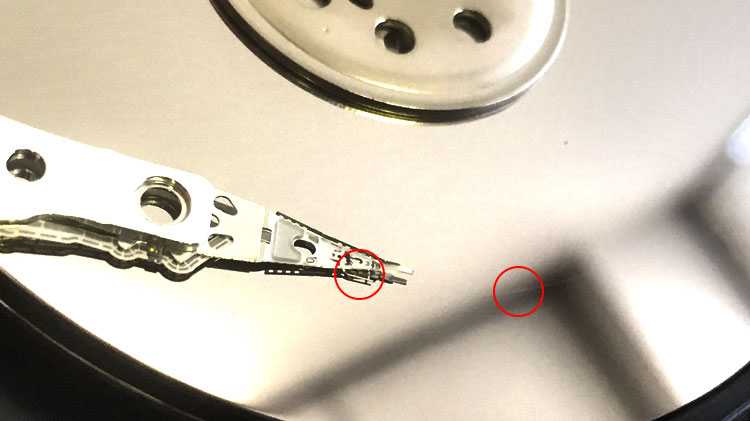Media Damaged Hard Drives: The Dos and Don'ts | ACE Data Recovery Services Article
Dealing with a media damaged hard drive is a daunting experience, but taking precautions can improve the chances of recovering your valuable data.
Experiencing a media damaged hard drive is one of the most distressing hardware failures one can encounter. This catastrophic issue often results in the drive's read/write heads scraping against the platters, transforming precious data into irrecoverable dust. The root causes of media damage are varied, but they typically include physical mishandling and improper recovery attempts. Here, we outline key indicators of media damage and crucial steps to mitigate further harm.
Recognizing the Risk of Media Damage
Media damage is more likely to occur under the following conditions:
- Physical Damage: Dropping, hitting, or mishandling the hard drive while it is in use can lead to severe damage. This is because the impact can misalign the read/write heads or even cause them to contact the platters directly.
- Improper Recovery Attempts: When a hard drive has failed but does not initially exhibit media damage, incorrect recovery methods can introduce such damage. For instance, using non-professional recovery software or opening the drive in a non-sterile environment can exacerbate the situation.
A telltale sign that your hard drive might be on the brink of media damage is a persistent grinding or clicking sound. This auditory cue often indicates that the drive has already experienced a mechanical failure and, if allowed to continue operating, may soon suffer from media damage.

The Dos and Don’ts to Protect Your Data
Even with extensive experience in data recovery, such as the 40+ years accumulated by ACE Data Recovery, the window to save data from a media damaged hard drive is extremely narrow. To maximize your chances of successful data recovery, follow these essential guidelines:
Do Not Use Data Recovery Software
While data recovery software can be beneficial in many scenarios, using it on a potentially media damaged drive is highly discouraged. These programs can place additional stress on the already compromised hardware, worsening the damage and potentially causing irreversible data loss. The software may also corrupt the drive's firmware, making professional recovery efforts much more challenging or even impossible.
Do Not Open the Drive
Under no circumstances should you attempt to open a hard drive outside of a controlled, sterile environment. Hard drives are highly sensitive to dust and other particulates. Introducing foreign particles can cause further damage if the drive is powered on again, as these particles can interfere with the delicate read/write processes. Professional data recovery services utilize cleanroom environments specifically designed to prevent this kind of contamination.

Avoid Amateur Solutions and Quick Fixes
The internet is rife with "quick fixes" and amateur solutions for hard drive failures, such as placing the drive in a freezer. These methods are rarely, if ever, effective and can cause more harm than good. Hard drives are complex and delicate pieces of technology, and there is no universal solution that can address all types of failures. Relying on unproven techniques can reduce the chances of successful data recovery.
The Importance of a First Attempt Success
In cases of media damage, the initial recovery attempt is critically important. Each subsequent attempt reduces the likelihood of success due to the fragile state of the damaged media. Therefore, if you suspect that your hard drive has mechanically failed or is on the verge of media damage, it's vital to treat the situation with utmost urgency and care.
Preventing Hard Drive Damage During Operation
When hard drives are moved during operation, the read/write heads can come into contact with the platters, causing significant damage. The heads are designed to float above the platters on a cushion of air created by the spinning disks. Any physical shock or movement can disrupt this delicate balance, leading to scratches on the platters and loss of data.
Data Recovery and Limitations
ACE Data Recovery can recover data from hard drives that are lightly damaged. However, if the thin film of magnetic material on the platters is scratched, recovery becomes impossible. This is why it's essential to take preventive measures to avoid media damage.
Preventive Measures
To minimize the risk of media damage, always handle your hard drives with care. Avoid sharply moving your laptop or external hard drive while it is in use, and ensure that the device has completely powered down before transporting it – give your equipment at least 5 seconds to park the heads and stop spinning. In our experience, investment in protective cases or shock-absorbing mounts doesn’t safeguard your equipment from media damage.
Warning Signs and Immediate Action
If you hear a clicking noise from your hard drive, even briefly, contact ACE Data Recovery immediately. The clicking noise is often an indication that the drive's heads are repeatedly trying and failing to read data, which can quickly escalate into severe media damage. Do not wait until the clicking becomes permanent, as this could lead to irreversible data loss. Prompt action can make the difference between recovering your valuable data and losing it forever.

Conclusion
Dealing with a media damaged hard drive is a daunting experience, but taking the right precautions can significantly improve the chances of recovering your valuable data. Avoid using data recovery software, refrain from opening the drive, and ignore unverified quick fixes. Instead, seek professional assistance promptly. Remember, with media damage, you often have just one chance to recover your data, so make it count by following these guidelines. The awareness and careful handling are key to preventing media damage in hard drives. By taking a few simple precautions, you can protect your data and extend the lifespan of your storage devices. If you suspect any issues with your hard drive, don't hesitate to reach out to ACE Data Recovery services for professional assistance.
